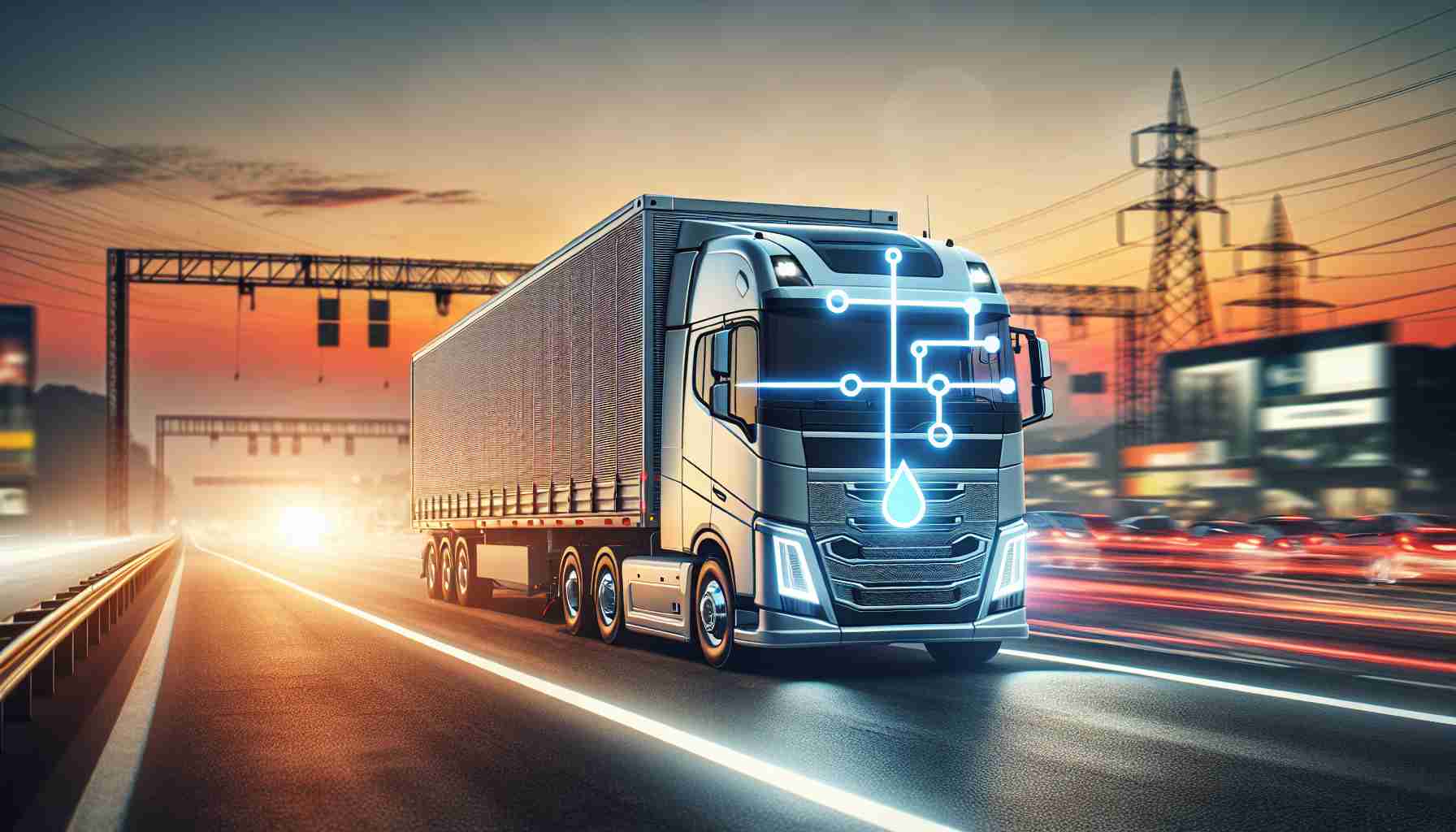A groundbreaking initiative is underway in Texas aimed at transforming the future of hydrogen-powered heavy-duty vehicles. The Southwest Research Institute (SwRI) has launched a collaborative four-year project known as H2HD REFUEL, designed to enhance hydrogen refueling technologies essential for these vehicles.
With currently fewer than sixty hydrogen refueling stations scattered across the United States, only a handful cater specifically to heavy-duty trucks. According to experts, many existing stations face serious obstacles such as supply chain disruptions and operational inefficiencies. This project seeks not just to troubleshoot these challenges but to innovate based on research and practical testing.
The collaborative effort will unite manufacturers, equipment producers, and station operators to pioneer advancements in refueling technologies. As part of this initiative, researchers will explore various storage options including liquid hydrogen and advanced gas methods while tackling inefficiencies observed in current cryogenic systems.
Building strong partnerships among industry stakeholders is imperative. With a comprehensive approach, H2HD REFUEL aims to streamline the development of reliable refueling infrastructures that can meet the escalating demands for heavy-duty hydrogen vehicles, ensuring safety and efficiency.
Participants in the project will gain access to SwRI’s advanced research capabilities and engage in collaborative workshops aimed at bridging existing technology gaps. This initiative is a pivotal stride in steering the transportation sector toward a decarbonized and sustainable future.
Revolutionizing Heavy-Duty Transportation: The Future of Hydrogen Power
The Hydrogen-Powered Revolution for Heavy-Duty Vehicles
A transformative initiative in Texas, dubbed the H2HD REFUEL project, is set to reshape the landscape for hydrogen-powered heavy-duty vehicles. Launched by the Southwest Research Institute (SwRI), this four-year venture aims to tackle the existing challenges in hydrogen refueling technologies crucial for the transportation sector.
The Current Landscape of Hydrogen Refueling
As it stands, the United States boasts fewer than sixty hydrogen refueling stations, with even fewer tailored to heavy-duty trucks. Many of these stations are hampered by significant operational challenges, including supply chain interruptions and inefficiencies that impact both availability and reliability. The H2HD REFUEL project is dedicated to addressing these significant hurdles while paving the way for innovative solutions backed by thorough research and hands-on testing.
Collaborative Efforts for Technological Advancements
The H2HD REFUEL project is distinguished by its collaborative approach, uniting manufacturers, equipment producers, and station operators. This partnership is vital for fostering advancements in refueling technologies. Key objectives include:
– Exploring Storage Solutions: Researchers will analyze different hydrogen storage options, focusing on both liquid and advanced gas methods to enhance refueling efficacy.
– Improving Cryogenic Systems: Existing cryogenic systems, which currently present inefficiencies, will be a focal point for innovation, aiming to streamline their operations.
Features and Benefits of the Project
1. Access to Advanced Research: Participants will leverage SwRI’s cutting-edge research capabilities, gaining insights that can facilitate their individual business operations.
2. Collaborative Workshops: Regular workshops will provide a platform for sharing knowledge and bridging technology gaps, ensuring that all stakeholders are aligned toward common goals.
3. Focus on Safety and Efficiency: Prioritizing safety and operational efficiency is critical, as the industry begins to embrace a larger fleet of hydrogen-powered heavy-duty vehicles.
Pros and Cons of Hydrogen-Powered Vehicles
Pros:
– Environmental Impact: Hydrogen fuel cells produce only water vapor as a byproduct, making them a clean alternative to fossil fuels.
– Efficiency: Hydrogen can provide longer driving ranges for heavy-duty vehicles compared to traditional battery systems.
Cons:
– Refueling Infrastructure: The current lack of widespread hydrogen refueling stations poses a significant limitation.
– High Production Costs: The production of hydrogen, especially green hydrogen using renewable energy, can be costly and energy-intensive.
Limitations and Considerations
Despite the project’s promising outlook, several limitations persist in the hydrogen vehicle sector. The main challenges include:
– Scarcity of Refueling Stations: Ensuring the widespread availability of refueling stations is crucial for the commercial viability of hydrogen vehicles.
– Cost of Infrastructure Development: The financial investment required to establish a robust hydrogen refueling network is substantial.
Market Trends and Future Predictions
As the demand for sustainable transportation solutions grows, the hydrogen market is expected to witness significant developments. Analysts predict that:
– The hydrogen economy will expand dramatically in the coming years, spurred by government incentives and corporate investments.
– Technological advancements from projects like H2HD REFUEL could lead to more efficient refueling solutions, stimulating broader adoption of hydrogen vehicles.
Sustainability and Security Aspects
The shift towards hydrogen-powered vehicles aligns with global sustainability goals, aiming to reduce carbon emissions from heavy-duty transportation. Additionally, fostering a hydrogen infrastructure enhances energy security by diversifying fuel sources and reducing dependency on fossil fuels.
For more information on advancements in hydrogen technology and sustainable transport solutions, visit Southwest Research Institute.


